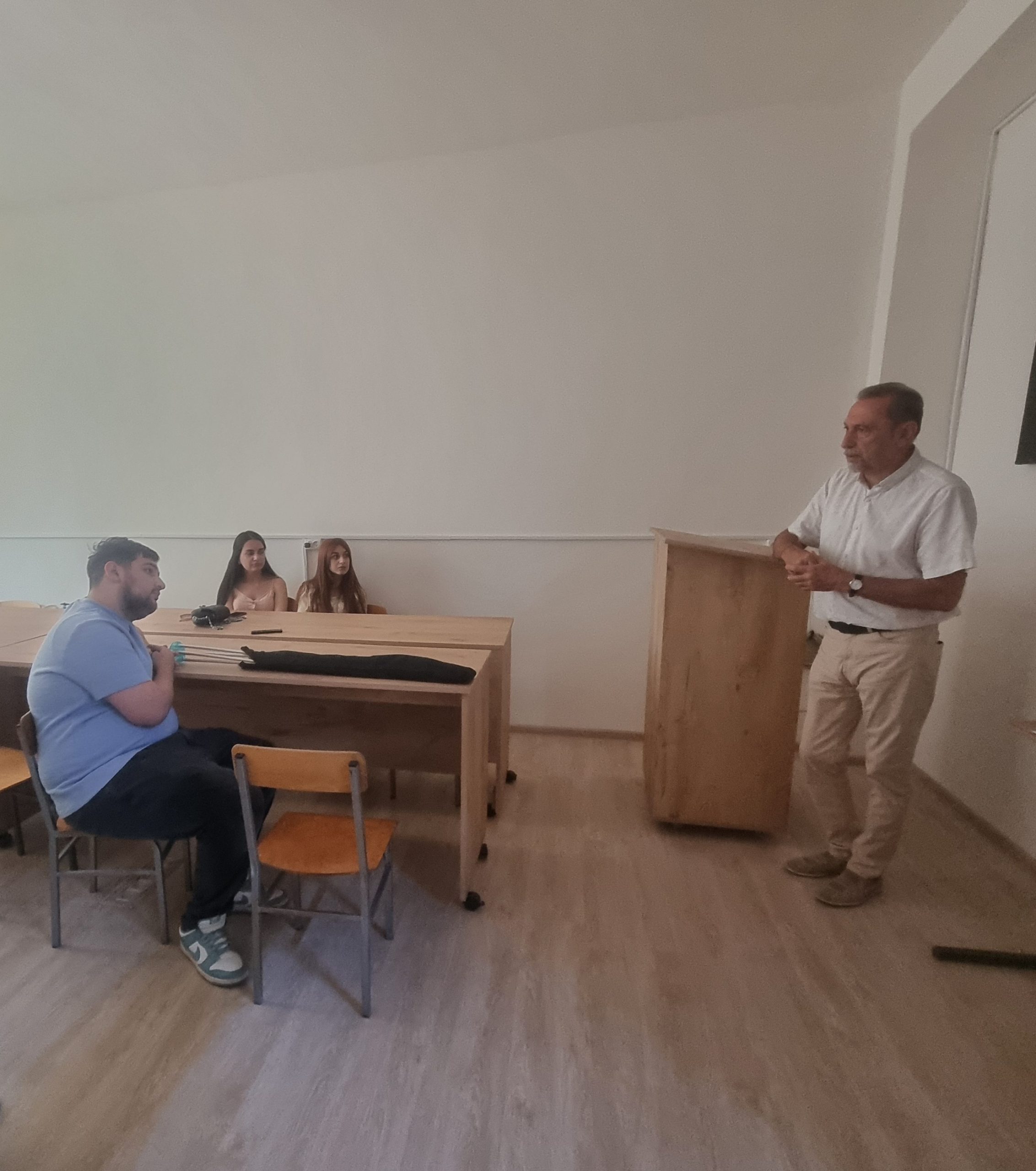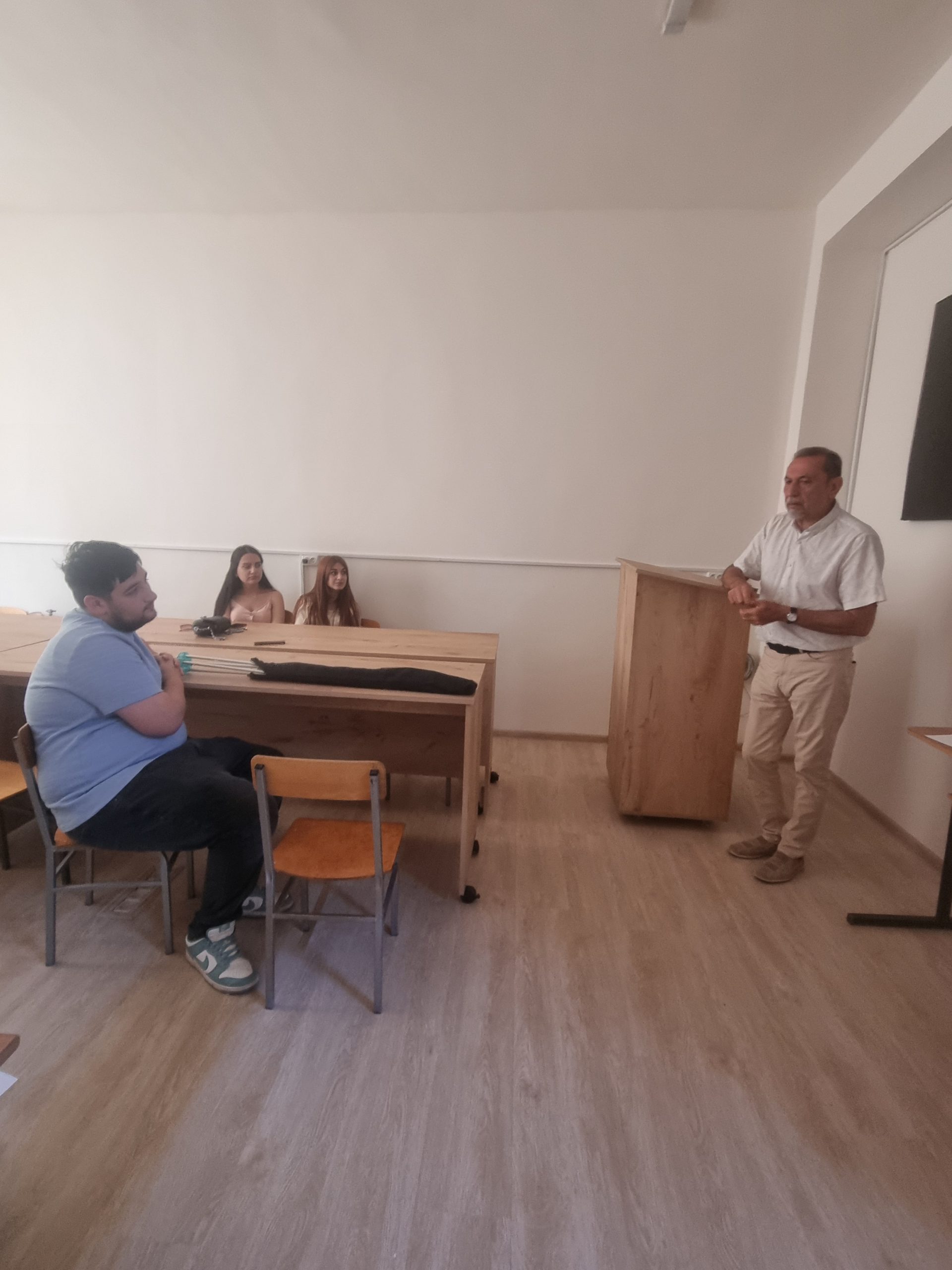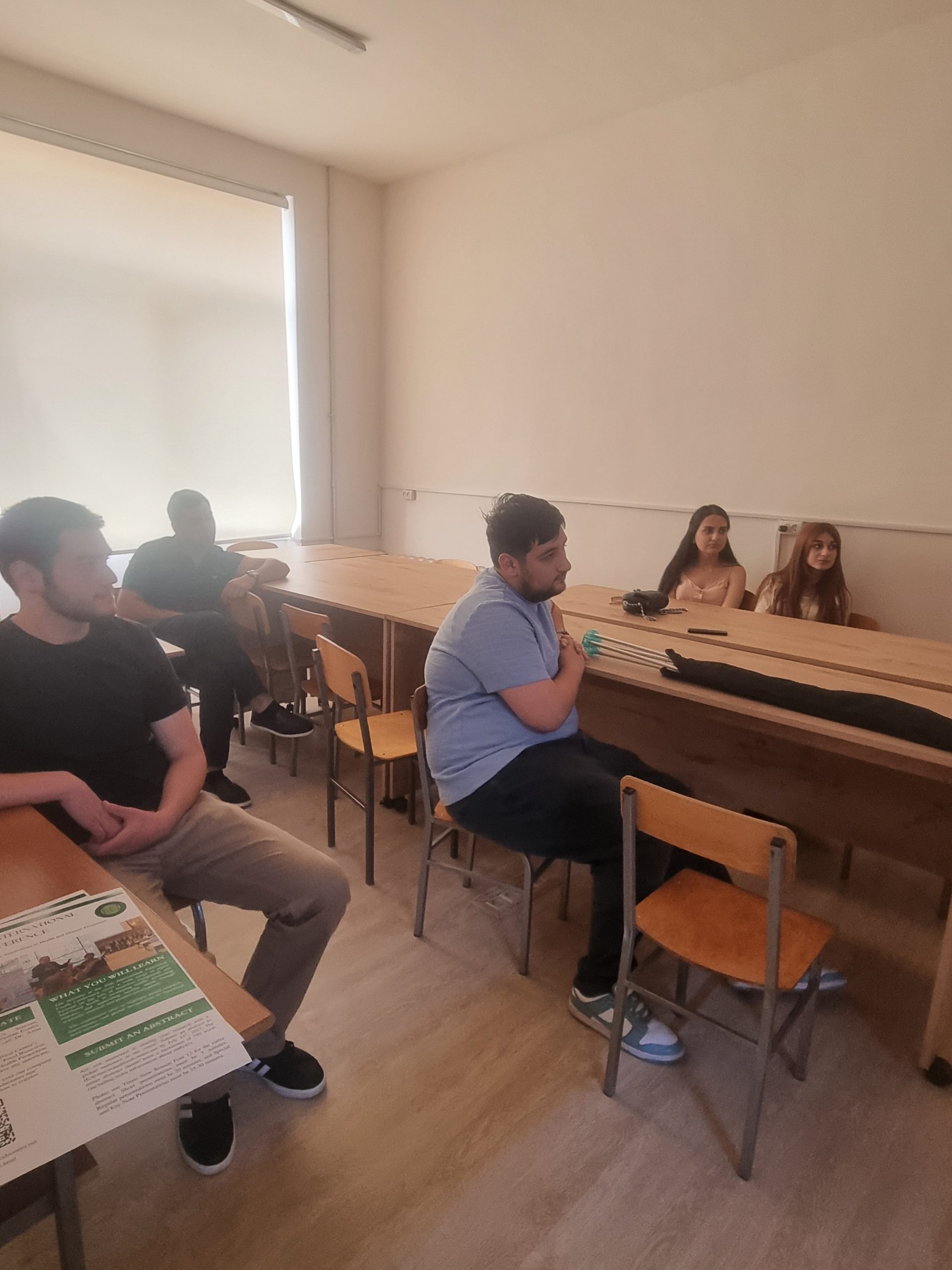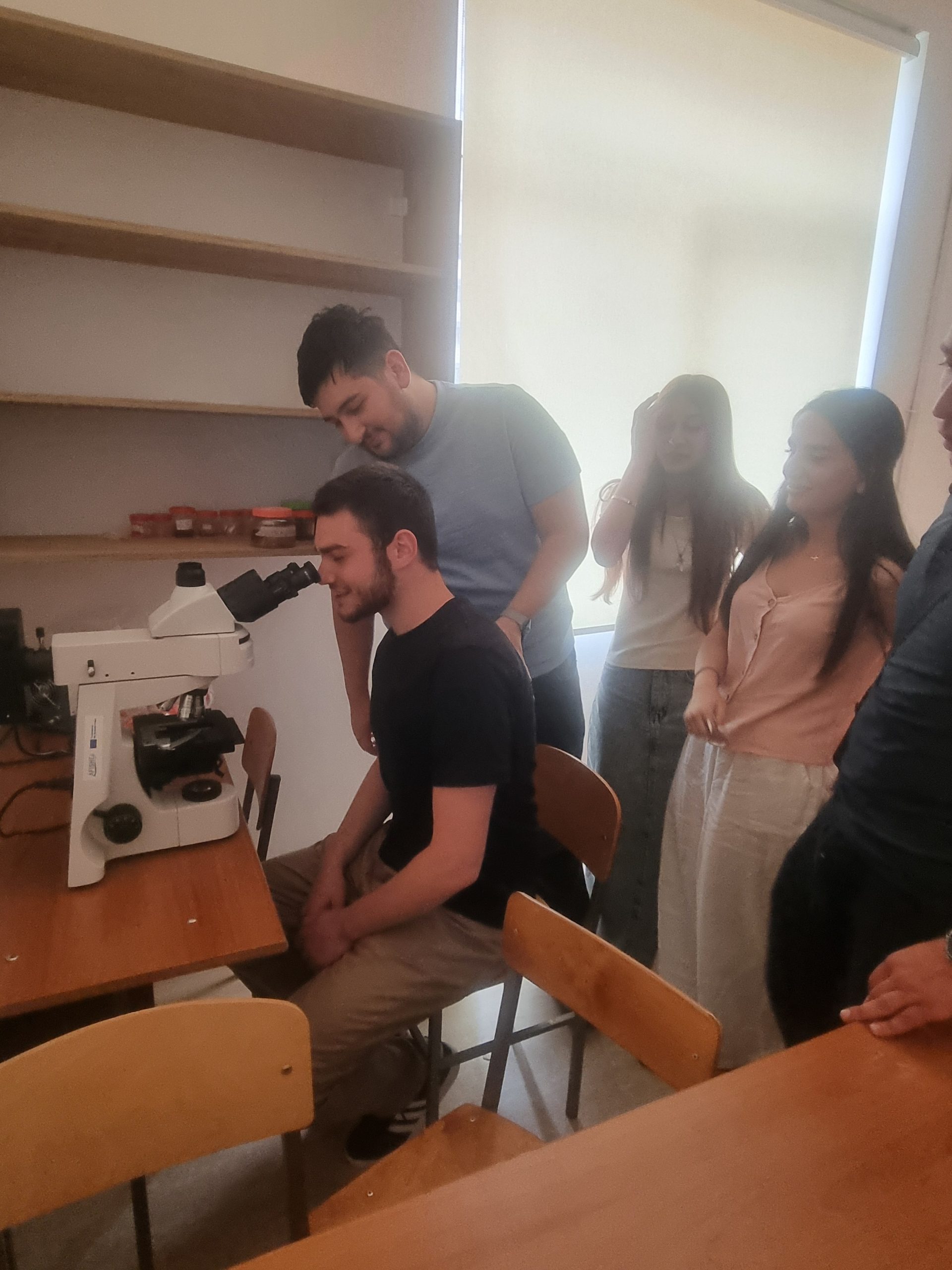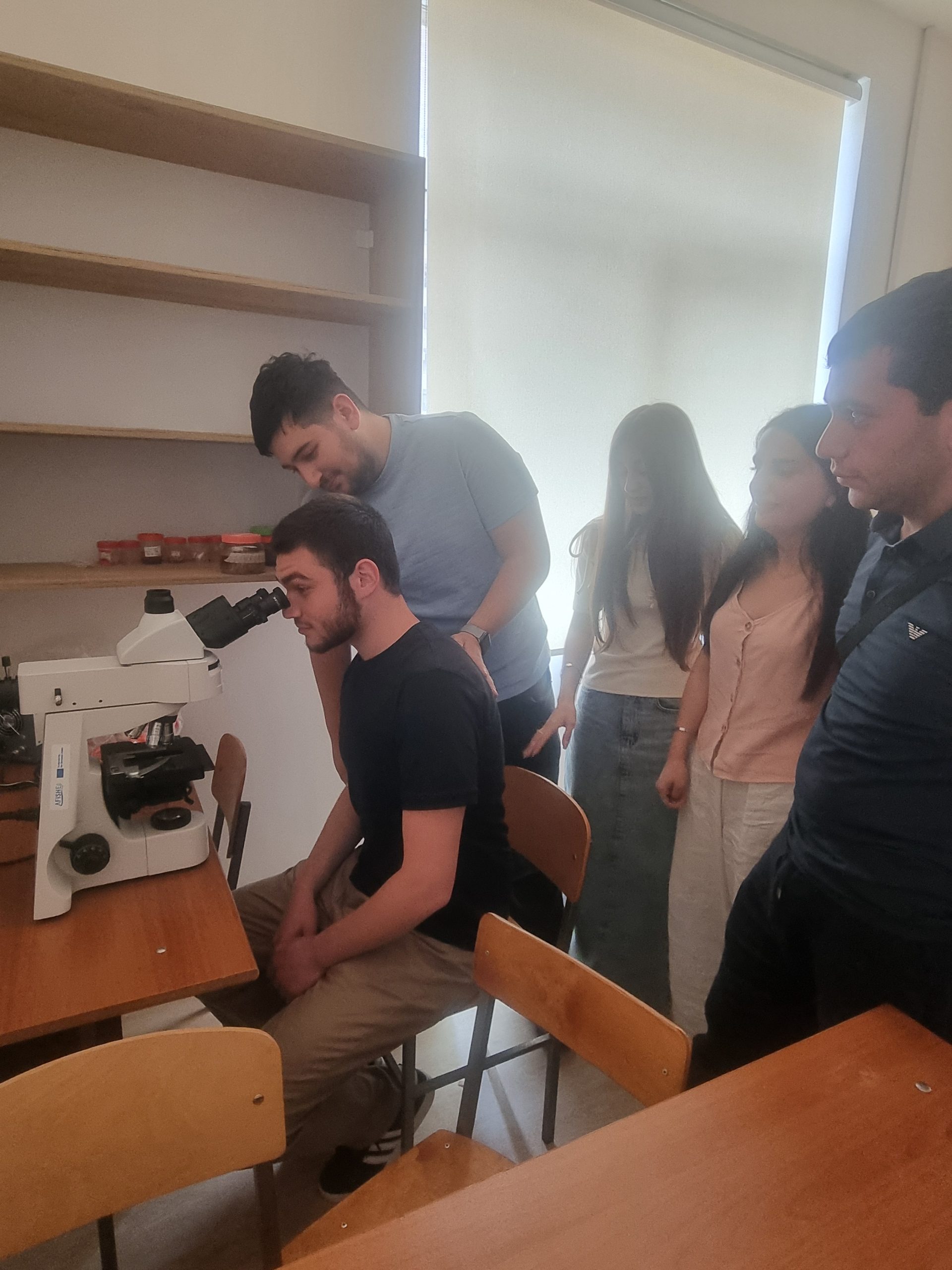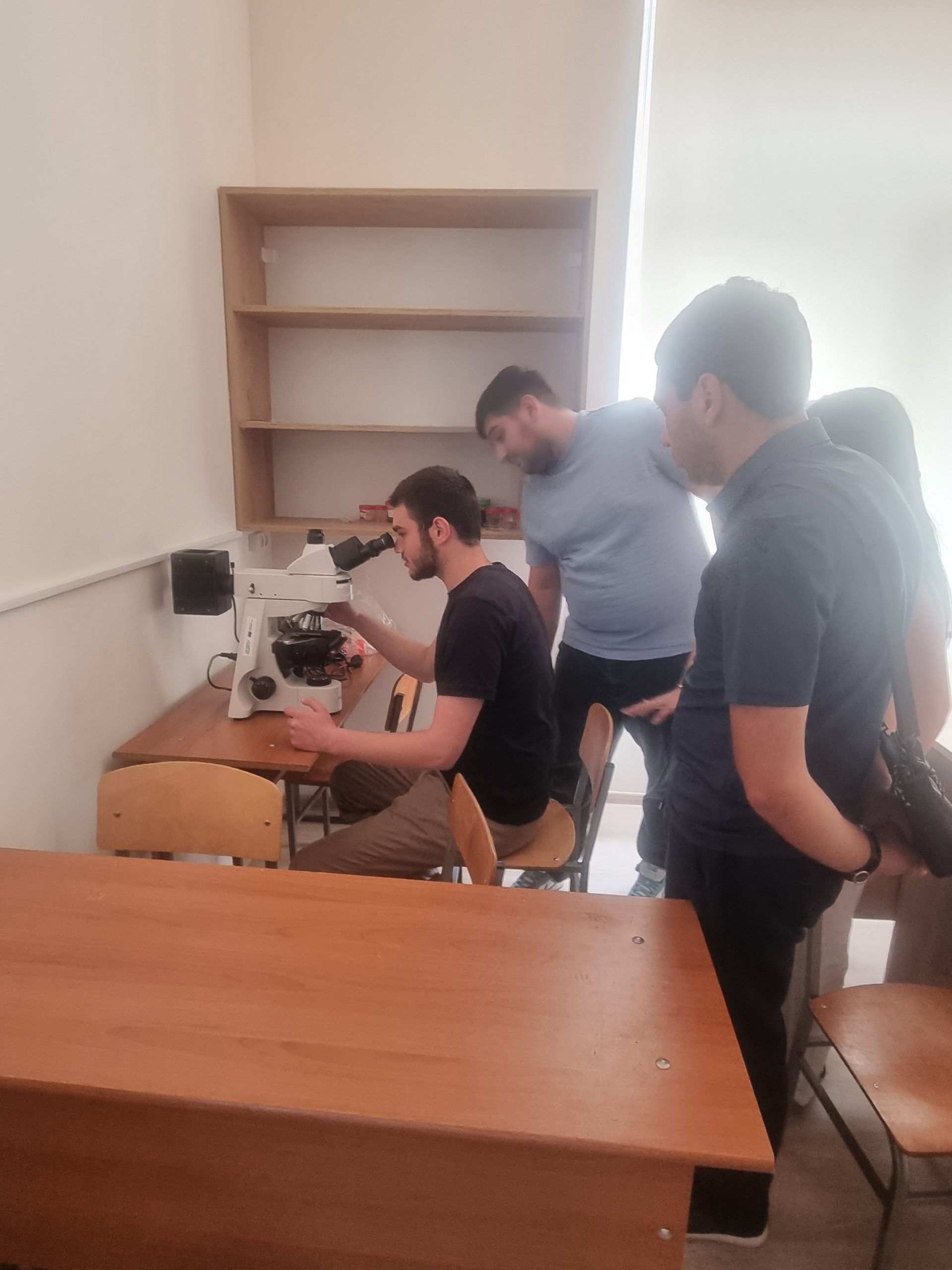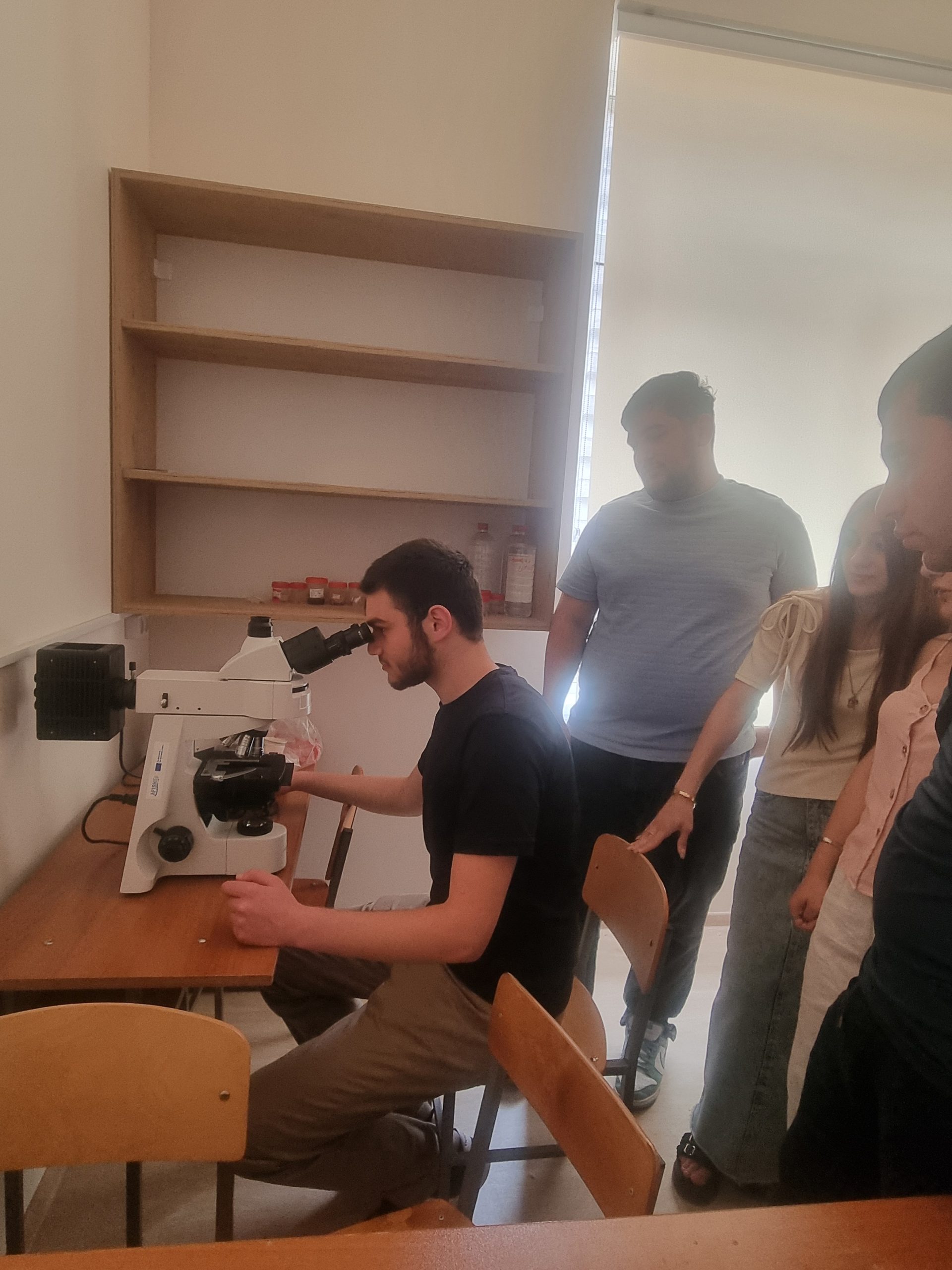14 Jul AFISHE Lab Welcomes First-Year RAU Students for Hands-On Internship Training
In a dynamic step toward strengthening academic collaboration and fostering the next generation of scientists, the AFISHE Scientific-Educational Laboratory of ISEC NAS RA recently hosted first-year Medical Biochemistry students from the Russian-Armenian University (RAU) as part of their practical training program.
The visit offered students an immersive introduction to AFISHE’s state-of-the-art research infrastructure and a closer look at both current and prospective scientific initiatives. The internship program was designed to bridge theoretical instruction with real-world scientific exploration — a critical element in shaping competent and confident future specialists.
A key highlight of the visit was a comprehensive presentation delivered by Dr. Bardukh Gabrielyan, Chief Researcher at the Ichthyology Laboratory of the Scientific Center for Zoology and Hydroecology, National Academy of Sciences of Armenia. Dr. Gabrielyan shared in-depth insights into the objectives, achievements, and ongoing activities of various projects, while also shedding light on the diverse career opportunities available to young researchers in the field of life sciences.
“This kind of exposure is essential for students to understand how their classroom knowledge translates into meaningful scientific work,” Dr. Gabrielyan noted. “It not only broadens their perspective but also inspires long-term academic and professional commitment.”
The AFISHE team expresses sincere appreciation to the students and the Institute of Biomedicine and Pharmacy of RAU for their active participation, inquisitive engagement, and academic enthusiasm.
We look forward to deepening our partnership with RAU and continuing to provide young scientists with meaningful opportunities to grow, explore, and innovate.
The webinar was organised on 20 June 2025 and brought together leading researchers and specialists from Armenia and Ukraine for an interesting webinar on the state of freshwater ecosystems, biodiversity and the future of aquaculture in the region.
The online event featured thought-provoking presentations that addressed critical environmental challenges, the consequences of human activities and the urgent need for sustainable solutions.
Bardukh Gabrielyan, Chief Researcher at the Ichthyology Laboratory of the Scientific Center for Zoology and Hydroecology of NAS RA, opened the session with his presentation “Biodiversity of aquatic ecosystems”,” which gave an overview of the rich but endangered freshwater biodiversity in Armenia.
Vyacheslav Popsuy, PhD in Agricultural Sciences and Associate Professor at Sumy National Agrarian University, followed with an impressive presentation on the “Consequences of the environmental disaster caused by the criminal military actions of the Russian Federation and its impact on the biodiversity and biological resources of the Seim and Desna rivers”. He described the devastating impact of the conflict on the environment and emphasised the urgent need for transboundary ecological restoration measures.
Oleksandr Mykhalko, Doctor of Philosophy and Associate Professor at Sumy National Agrarian University, shared his insights on “Aquaculture in the Sumy Region: Value Chain Analysis and Prospects”. His analysis highlighted the challenges and untapped potential of the local aquaculture industry, especially in light of the current security situation.
To conclude the series, Yulia Grokhovska, PhD in Agricultural Sciences and Professor of the Department of Aquatic Bioresources at the National University of Water and Environmental Engineering, presented her research on “Biodiversity of aquatic ecosystems of the Pripyat River Basin under human influence”, emphasising the impact of pollution, agricultural activities and urban development on regional water quality and biodiversity.
Throughout the webinar, participants discussed pressing issues such as accelerated eutrophication, the spread of alien fish species, industrial pollution and the social and environmental consequences of war. Case studies from Lake Sevan and other ecosystems vividly illustrated the rapid ecological changes caused by human intervention. The discussions also highlighted innovative approaches to revitalising aquaculture and maintaining ecological balance. Speakers emphasised the importance of scientific collaboration, knowledge sharing and policy support to promote sustainable management of water resources and biodiversity conservation.
This webinar demonstrated the importance of international co-operation in tackling common environmental challenges. By bringing together experts and stakeholders, the project aims to strengthen regional efforts to protect freshwater resources and promote resilient, sustainable aquaculture.


